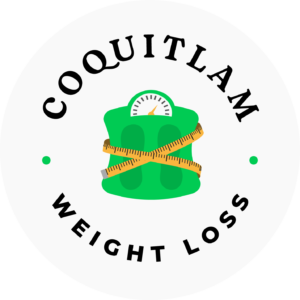Breast Cancer Survivors Shed 44 Pounds in 5 Months
SAN ANTONIO, Texas — A small cohort of 24 postmenopausal breast cancer survivors with an average body weight of 220 pounds lost an average of 44 pounds during a 5-month period with a low-carbohydrate, calorie-restricted dietary intervention, according to a poster presentation here at the 36th Annual San Antonio Breast Cancer Symposium (SABCS).
“This is significant, life-changing, metabolically altering weight loss,” lead author Amy Krie, MD, told Medscape Medical News. She is from the Avera Cancer Institute, Sioux Falls, South Dakota. “It’s remarkable weight loss,” said Nicki Simone, MD, from Thomas Jefferson University in Philadelphia, Pennsylvania, who was not involved in the study and was asked to comment. Weight loss is important in these postmenopausal women because obesity has been associated with decreased breast cancer–free survival and overall survival, said Dr. Krie.
The intervention consisted of protein-based meal replacements (0.5 g protein per pound of actual body weight) for 3 of 4 daily meals, which was part of a diet including less than 40 g of carbohydrates and 800 to 1200 calories per day. The product, Ideal Protein, is commercially available and was chosen in part because of its convenient packaging that promotes compliance, said Dr. Krie, who has no financial ties to the manufacturer.
The weight loss was accompanied by rapid and significant reductions in serum hormonal levels and serum inflammatory markers, reported the study authors. Reducing levels of these markers has been associated with improved breast cancer outcomes in other studies, said Dr. Krie. “The study demonstrates the power of a diet-based intervention to acutely change patient characteristics and biomarkers and potentially change outcomes in the long run,” said Dr. Simone.
However, a critic of the new study was uncertain about the very same long run with the study participants. “It’s great that they are studying weight loss,” said Jennifer Ligabell, MD, from Dana Farber Cancer Institute in Boston, Massachusetts. “But rapid weight loss programs are associated with weight regain over time,” she told Medscape Medical News. In addition, losing so much weight so quickly has also been associated with loss of muscle mass, she pointed out. For weight loss to be “sustainable”, women need to be educated about healthy diets and appropriate exercise, said Dr. Ligabell, who served as a moderator of a poster discussion session that included Dr. Krie’s study.
Dr. Krie defended the program. “These are very obese women with average [body mass index] of 37 [kg/m 2 ]. They have difficulty with exercise to any degree.”
“However, once there has been significant weight loss, they were better able and much more willing to partake in exercise programs,” she continued.
The study design was based in phases. “In phase 1, there is rapid weight loss. Then there are 3 additional phases with the goal to reintroduce normal foods. During these end phases, we are doing dietary and exercise counseling so that hopefully women can maintain their newly achieved weight,” said Dr. Krie.
“Our most important finding is: It can be done,” Dr. Krie said. “It was crazy awesome to see the women lose that much weight.”
With a positive feasibility study in hand, larger trials evaluating the role of carbohydrate restriction in cancer survivors are now needed, suggested Dr. Krie and coauthors in their poster. Carbohydrate and calorie restriction as cancer treatment is a small but growing area of cancer research, as reported by Medscape Medical News. Single-arm studies of calorie/carbohydrate restriction as a cancer treatment are underway in breast cancer at Thomas Jefferson University (led by Dr. Simone) and in pancreatic and lung cancer at the University of Iowa in Iowa City and in prostate cancer in a randomized clinical trial at Duke University in Durham, North Carolina.
Markers The women in the new study had early-stage, estrogen receptor–positive breast cancer, were an average age of 67 years, and were all being treated at the Avera Cancer Institute. They had completed surgery and adjuvant chemotherapy and had no underlying inflammatory conditions or diabetes. All but 1 woman was receiving endocrine therapy. “The weight loss is especially remarkable because the patients were on anti estrogen therapies, which are known to cause weight gain,” observed Dr. Simone. During the 19-week period, the mean weight loss was 19.9% of total body weight, or the equivalent of 43.7 pounds. Total body fat lost was 6.86%. Weight loss averaged 5.4 pounds in week 1 and 2.14 pounds per week in weeks 2 to 19.
Information from Industry
The authors chose to evaluate metabolic markers during the study period because elevated estradiol levels, hyperinsulinemia, and increased inflammatory mediators are all associated with poorer breast cancer outcomes in postmenopausal women in other research. They report that the decline in serum estradiol levels approached statistical significance (P = .056). There was also a rapid decline in fasting insulin level: a 23% decline by week 3 (P= .0959), 26% by week 7 (P = .0139), and 42% by week 19 (P = .0071). There was also a statistically significant improvement in serum C-reactive protein levels, with a 40% decrease at week 19 (P = .0272) when compared with baseline.
Study diet materials were provided by Ideal Protein. The authors have disclosed no relevant financial relationships.
36th Annual San Antonio Breast Cancer Symposium (SABCS): Abstract PD2-5. Presented December 11, 2013.

